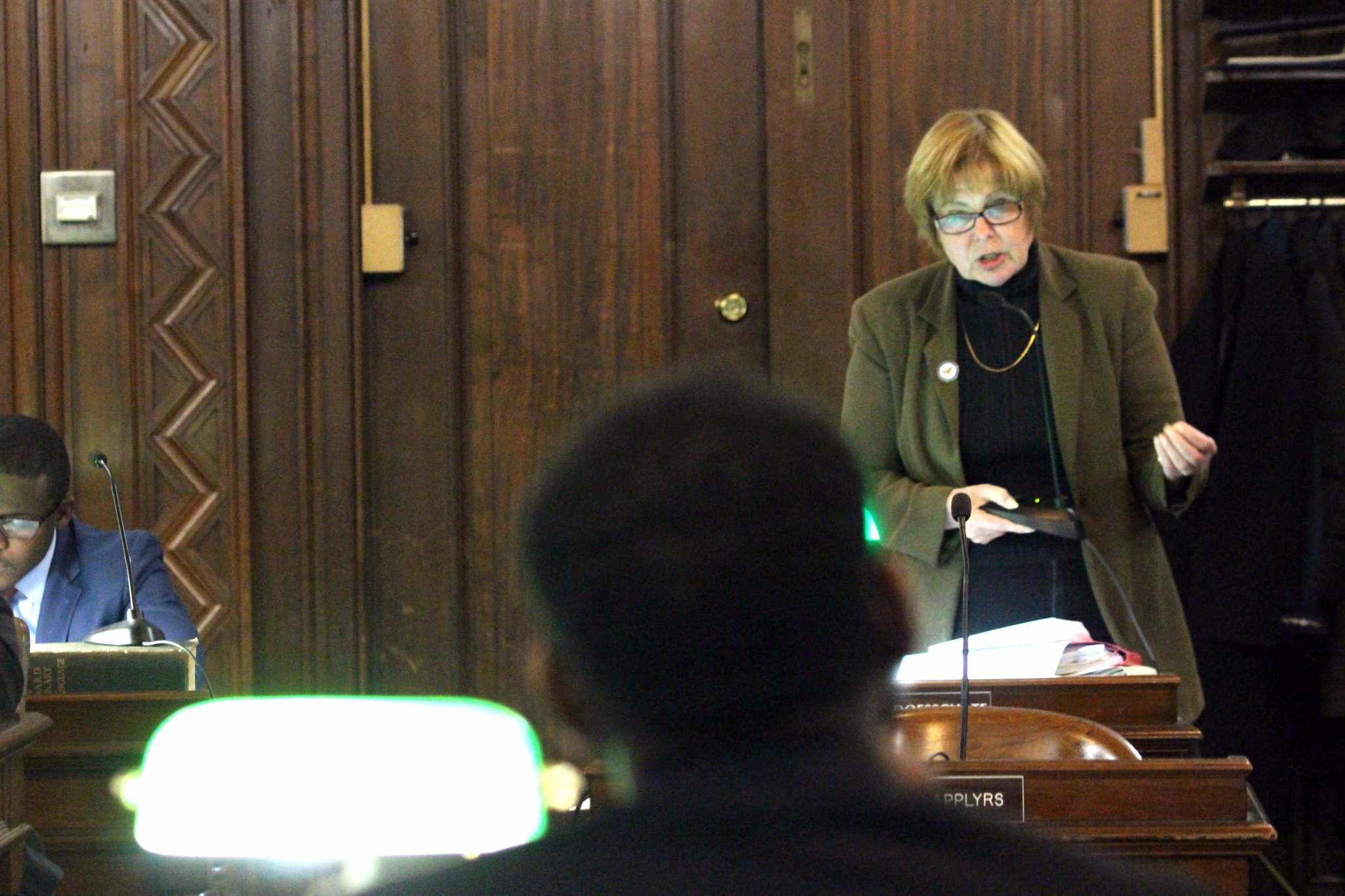Albany pulls trash fee exemption for single-family homes
ALBANY — The Common Council voted to end free trash hauling for single-family residences, begrudgingly accepting a critical budget recommendation from Mayor Kathy Sheehan.
Under new local law, residents come 2019 will be required to pay $90 for trash hauling. Previously, only multi-unit residents have been charged $180.
Disabled and public housing residents are still exempt from paying the fee.
Proponents of the measure hope it will be the last of a kind. They anticipate a “pay-as-you-throw” system in 2020, a model in which residents are billed based on the amount of trash they put curbside.
“We’re not there yet,” said Richard Conti, Common Council Pro-tem President, during a caucus meeting. “This is the bridge to getting us there.”
Part of a sunset provision, the $90 fee will expire December of next year.
Had the fee not passed on Monday night, Councilwoman Judy Doesschate, head of the Finance Committee, said she would pull a resolution to adopt the city’s 2019 budget.
Altogether, the fee pushed through 10-4, and council members unanimously backed the budget.
“I understand that there are arguments to be made on the other side,” Doesschate said. “However, that’s where I fall down on this.”
Trash hauling changes, along with a 2 percent water rate proposal, are among reasons Councilman Jahmel Robinson ultimately said nay to the legislation. He was joined by Joyce Love, Jack Flynn, and Derek Johnson.
For some constituents, Robinson said, the $90 could be the difference between “a home and a shelter.”
About one-fourth of city residents live below the poverty line.
Flynn told Upstate Courier after the meeting that constituents were urging him to vote against the measure. His ward has about 8,000 residents, most of which live in single-family units.
The Eighth Ward lawmaker believes the city should stick to the current fee until a permanent system arrives.
“I don’t think it’s good government when you go from this policy to this policy to this policy,” he said. “It’s all the same issue.”
Turning off four council members (Councilwoman Dorcey Applyrs was absent), the legislation made strange bedfellows with Councilman Michael O’Brien, who has a steady record of disapproving trash fees.
Councilman Alfredo Balarin made an urgent case for the legislation: the city must change revenue sources within eight years before Rapp Road Landfill closes.
For years, commercial haulers have brought millions to the landfill. In recent years, that stream has become thinner.
Revenue from both single and multi-units are anticipated to stabilize the budget gap as the city works on a new trash collection model, Balarin said, emphasizing discomfort with the fee. “I wish I could tell you it’s going to get better but it’s not.”
Fiscal stress
Raising the tax levy or making deep cuts would’ve been likely solutions if the trash fee was eliminated altogether, Doesschate said.
Following revenue growth recommendations underscored prior by Gov. Andrew Cuomo’s administration, the $90 extension is intended to make chummy with state officials in an effort to secure capital funding next year.
Sheehan requests the state close a $12.5 million deficit in the city’s next year budget.
Albany receives significantly less state aid than other comparatively-sized Upstate cities like Syracuse, Rochester, and Buffalo.
“They don’t think we tighten our belts enough and that’s what you hear at the Capitol,” said Councilwoman Cathy Fahey.
The state isn’t the city’s only fiscal challenge. Some 63 percent of city properties are tax exempt, leaving out a large pot of revenue year after year.
For years, Albany officials have asked for voluntary tax contributions from such properties. Nothing has materialized.
Other budget highlights:
- The Council’s approved budget raises expenditures 33 percent.
- A sales tax increase projected to make up Fire Department funding increases.
- The Council made some adjustments to the mayor’s plan: increases in social security, contracted services, training and conferences; a $22,000 decrease in health insurance.
- Legislation includes a 1 percent raise for non-union white collar city workers.



